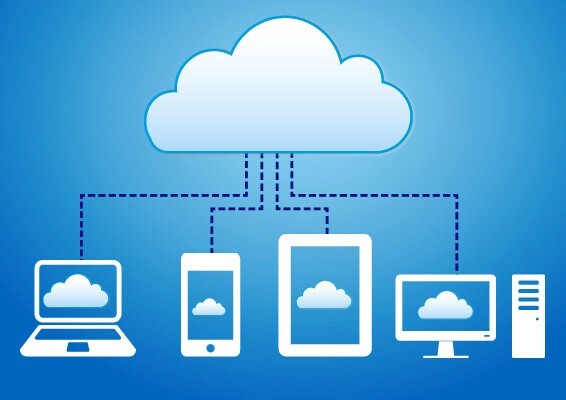Why aren’t you using cloud storage yet?

Not so long ago it was common for smaller Australian business to have a slow and sometimes unreliable ADSL internet connection (remember those days?) but today there are very few businesses not connected to high-speed broadband via NBN or one of the many private carriers.
Now that we all have fast and affordable internet connections there are plenty of good reasons to move your data to the cloud and very few reasons not to. When I speak to people about this there are a handful of questions and concerns that I frequently hear.
For most businesses, there are NO GOOD REASONS to not move your data to the cloud. Speak with your AWIT rep today or read on for more detail.
What’s so good about it?
Cloud storage is expandable, more secure and usually cheaper than traditional data storage. You can access your data from anywhere in the world and with the use of multi-factor authentication it is safer and better protected than data you store in-house. Because your data is accessible anywhere, it makes work-from home a breeze. If you have one or more servers in your business there is a good chance that moving your data to the cloud will mean you no longer need a server and all the expenses that go with it.
What happens if my internet connection goes down?
It is true that cloud-hosted data storage does increase your dependence on your internet connectivity and we address this in a couple of ways. We use something called client-side caching, this means that all of your frequently used files are cached on your local computer, so even if you don’t have internet connectivity you can still access your files. We can add 4G backup to your internet service and for smaller businesses using your mobile phone as a Wi-Fi hotspot can be a good solution on those rare times when your main internet service goes down.
How fast is it? Do I have to wait every time I want to open a document?
When you open a document or file that has not been cached on your local computer, the sync software immediately begins downloading the file. For regular, run-of-the-mill office files this happens so fast that it is not at all noticeable. If you are working on very large files you may experience a small delay when opening these documents but this can be overcome by configuring the sync software to always keep a local copy of that file or folder structure.
Does this mean I need more storage space on my local computer(s)
In most cases, no. A typical office computer has a 240GB SSD hard drive or if you bought it in the last 2 years it probably has around a 500GB SSD in it. In most cases we find that 240GB is sufficient but if you’re buying a new computer today you should consider around 500GB as a minimum. The total amount of data you store in the cloud does not really have any impact on how much local data storage you have because the cloud sync software is smart enough to figure out which files to keep local copies of and which ones not to.
After my data is moved to the cloud, does that mean I don’t need to run a separate backup system?
Yes, and no. This is one of those questions that really needs to be considered on a case by case basis and to a large degree it comes down to trust and your appetite for risk. Certainly data stored in the cloud is FAR better protected than data you store in your own office. Cloud hosting providers such as Microsoft and Dropbox put a lot of money and effort in to building resilient systems so as to protect your data from hardware failure, cyber attack and malware infection, the systems these companies put in place are far better and more advanced than anything you would do with an on-premises data storage system yourself. Even so, most cloud storage providers do not claim to backup your data, that is still your responsibility.
Some businesses choose to not backup their cloud hosted data at all and the odds are good that this will never cause a problem for them, others take a different view and prefer the peace of mind that an independent data backup provides.
There are many ways to backup your cloud hosted data, it can be as simple as having a copy or two on a portable USB drive but most people prefer a third-party online backup provider, while this does add to your licencing costs online data backups are easier, faster and more reliable than manual backup methods.
How much does it cost?
This is another one of those questions whose answer depends on your specific circumstances. For example, if you already use Microsoft 365 for some services you might already have the licences you need to move your data to the cloud but even if you don’t already have the necessary licences, cloud data storage is almost always cheaper than on-premises data storage with costs as low as around $10 per month. I estimate that around one third of our customers currently have the licences they need to use cloud hosted data storage but have not yet made the transition, what’s stopping you?
Our Services

Managed IT Support
Our fixed price Managed IT Support Programs will increase your businesses competitiveness and efficiency with our I.T. Professionals on call for you 24/7.

Same Day On-Site Support
Class leading response times ensure your that when things do go wrong we’ll be there in a hurry so you can get on with doing what your business does best.

Security and Data Protection
Custom designed security and data backup systems protect your business from emerging threats and gives you peace of mind.

Hardware and Software
We supply, install and maintain hardware and software from all major vendors including Hewlett-Packard, Microsoft, IBM, Intel and Dell all with our 30 day reconfiguration guarantee.
Testimonials

All good as usual, keep up the professional service.
Diana

Attentive and thorough, Australia Wide I.T. get onto any of our I.T. problems quickly – with prompt, friendly and efficient service. Whenever we need to upgrade, we know we can trust their knowledge in supplying flawless new equipment that always works both physically, and to suit our needs.
Alison

They’ve gotten to know our business so well and they’re truly interested in helping us. It’s like having our own I.T. Department in-house. Australia Wide I.T. takes a personal interest in our team, our business and where we’re going. They’re like family.
Other I.T. companies just didn’t seem to have the same depth of knowledge as these guys. Rather than blame the user (us) they go the extra mile, locate the problem and fix it – Every time!
Coral

A very big thank you from me to all of the guys there….You make things so easy for us and are always available to help.
A massive shout out to the Nash though for fixing our printer – you nailed it Nash and not only changed MY life, but also helped to save some trees in the Amazon Forest!
Thanks to you all.
Jo

My business has grown from 3 stores to 5 stores over the last 3 years; one of the unfortunate consequences of this has been the fact that our old server and network could not cope with the growth. After much deliberation we chose Australia Wide I.T. to not only arrange the supply and installation of our new network, but to also provide long term support. We have been very pleased with our decision and would happily recommend them.
Bruce

Thanks for all your help today. Your patience & tenacity for solving the problem is greatly appreciated.
Jacinta

We would recommend you to anyone, anytime.
Thank you all so very, very much for all your support. Not to mention bringing back my files to my Company. I cannot thank you guys enough.
Thanks again.
Leigh

Our previous I.T. Service Provider was distant, hard to contact and not customer focused. With Australia Wide I.T. we now have great service with a human touch. Our calls are answered promptly and the team is always ready to help in any way.
The maintenance program put in place by AWIT offers us peace of mind that our entire system is correctly and closely monitored.
Monica

The team at AWIT deliver nothing but breathtaking service!!!!
Brett

Your work last week was amazing. You couldn’t have been more supportive or expert in your conduct. I am very grateful and am amazed at your generous invoicing of last week’s work. I can only repay you by recommending you to as many people as possible.
Thank you. It is refreshing to know that when a problem occurs, you are always there – with great service.
Keran